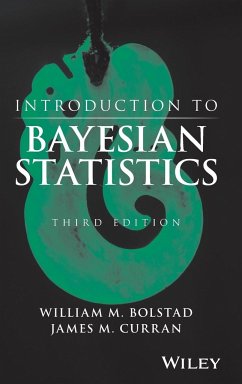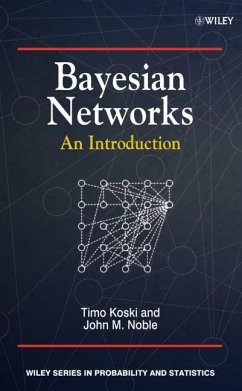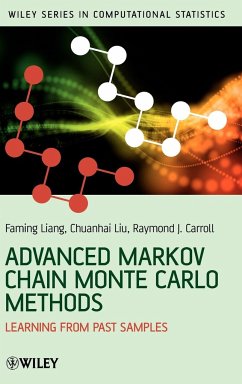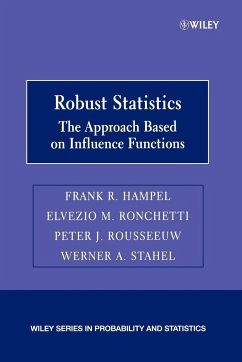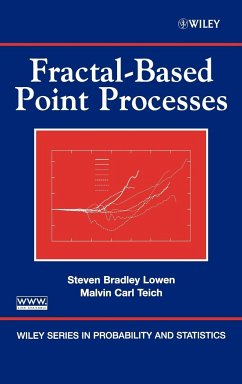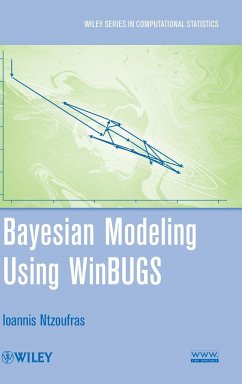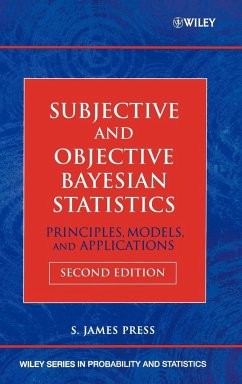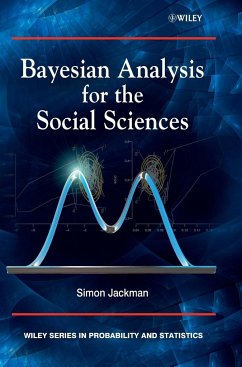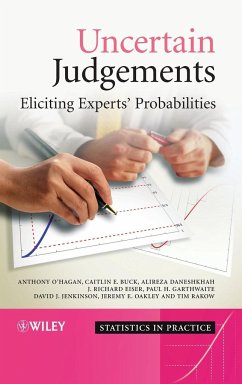Nicht lieferbar
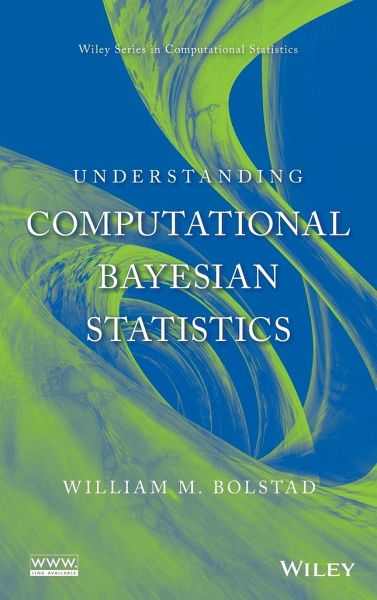
Understanding Computational Bayesian Statistics
A hands-on introduction to computational statistics from a Bayesian point of viewProviding a solid grounding in statistics while uniquely covering the topics from a Bayesian perspective, Understanding Computational Bayesian Statistics successfully guides readers through this new, cutting-edge approach. With its hands-on treatment of the topic, the book shows how samples can be drawn from the posterior distribution when the formula giving its shape is all that is known, and how Bayesian inferences can be based on these samples from the posterior. These ideas are illustrated on common statistica...
A hands-on introduction to computational statistics from a Bayesian point of view
Providing a solid grounding in statistics while uniquely covering the topics from a Bayesian perspective, Understanding Computational Bayesian Statistics successfully guides readers through this new, cutting-edge approach. With its hands-on treatment of the topic, the book shows how samples can be drawn from the posterior distribution when the formula giving its shape is all that is known, and how Bayesian inferences can be based on these samples from the posterior. These ideas are illustrated on common statistical models, including the multiple linear regression model, the hierarchical mean model, the logistic regression model, and the proportional hazards model.
The book begins with an outline of the similarities and differences between Bayesian and the likelihood approaches to statistics. Subsequent chapters present key techniques for using computer software to draw Monte Carlo samples from the incompletely known posterior distribution and performing the Bayesian inference calculated from these samples. Topics of coverage include:
Direct ways to draw a random sample from the posterior by reshaping a random sample drawn from an easily sampled starting distribution
The distributions from the one-dimensional exponential family
Markov chains and their long-run behavior
The Metropolis-Hastings algorithm
Gibbs sampling algorithm and methods for speeding up convergence
Markov chain Monte Carlo sampling
Using numerous graphs and diagrams, the author emphasizes a step-by-step approach to computational Bayesian statistics. At each step, important aspects of application are detailed, such as how to choose a prior for logistic regression model, the Poisson regression model, and the proportional hazards model. A related Web site houses R functions and Minitab(r) macros for Bayesian analysis and Monte Carlo simulations, and detailed appendices in the book guide readers through the use of these software packages.
Understanding Computational Bayesian Statistics is an excellent book for courses on computational statistics at the upper-level undergraduate and graduate levels. It is also a valuable reference for researchers and practitioners who use computer programs to conduct statistical analyses of data and solve problems in their everyday work.
Providing a solid grounding in statistics while uniquely covering the topics from a Bayesian perspective, Understanding Computational Bayesian Statistics successfully guides readers through this new, cutting-edge approach. With its hands-on treatment of the topic, the book shows how samples can be drawn from the posterior distribution when the formula giving its shape is all that is known, and how Bayesian inferences can be based on these samples from the posterior. These ideas are illustrated on common statistical models, including the multiple linear regression model, the hierarchical mean model, the logistic regression model, and the proportional hazards model.
The book begins with an outline of the similarities and differences between Bayesian and the likelihood approaches to statistics. Subsequent chapters present key techniques for using computer software to draw Monte Carlo samples from the incompletely known posterior distribution and performing the Bayesian inference calculated from these samples. Topics of coverage include:
Direct ways to draw a random sample from the posterior by reshaping a random sample drawn from an easily sampled starting distribution
The distributions from the one-dimensional exponential family
Markov chains and their long-run behavior
The Metropolis-Hastings algorithm
Gibbs sampling algorithm and methods for speeding up convergence
Markov chain Monte Carlo sampling
Using numerous graphs and diagrams, the author emphasizes a step-by-step approach to computational Bayesian statistics. At each step, important aspects of application are detailed, such as how to choose a prior for logistic regression model, the Poisson regression model, and the proportional hazards model. A related Web site houses R functions and Minitab(r) macros for Bayesian analysis and Monte Carlo simulations, and detailed appendices in the book guide readers through the use of these software packages.
Understanding Computational Bayesian Statistics is an excellent book for courses on computational statistics at the upper-level undergraduate and graduate levels. It is also a valuable reference for researchers and practitioners who use computer programs to conduct statistical analyses of data and solve problems in their everyday work.





